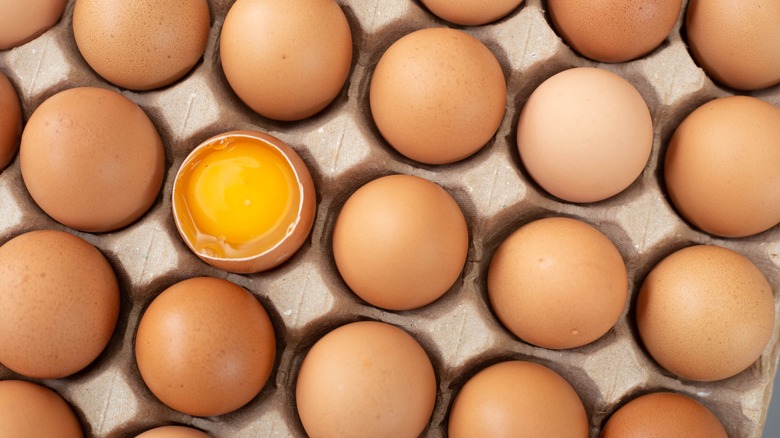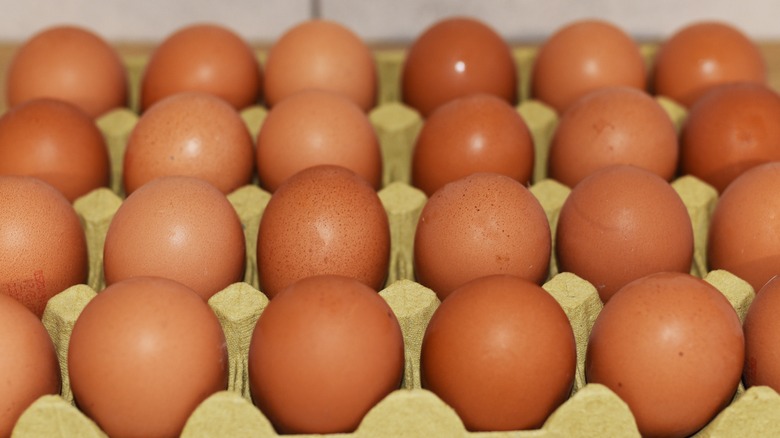Egg Prices May Have Peaked But Supply Is Still An Issue
Eggs are a staple in many people's refrigerator. Not only are they a great source of healthy fat and protein, but they are also a staple ingredient across different cultures and households (via Healthline). Furthermore, eggs are almost always sold in bulk (or cartons of 12), a tradition based on Anglo-Saxon and Roman forms of measurement, according to The New York Times. For these reasons, eggs are known to be a generally accessible food item, and have even been proclaimed as a potential solution in ending protein poverty (via Poultry World).
Perhaps that is why this popular animal byproduct's surging price, which has increased drastically from $1.70 a dozen last year for its Midwest large variation, can be quite astounding (via CNN Business). And although experts forecast this hefty price to drop after the busy holiday baking and cooking season, egg farmers and suppliers are still trying to recover from a shaky year.
Supply and other issues have led to increased prices
The price of eggs is still at an all-time high — and it's not solely due to dwindling supply caused by the coronavirus pandemic. Although the cost of a dozen eggs has certainly been impacted by the poultry item's increasing demand, there are other reasons for production slowdown.
Unlike milk and its popular byproducts (including cheese and ice cream), eggs have been affected by a wide-scale avian flu that has cut short the number of turkey and egg-laying hens, according to CNN Business. This, compounded by the desire for the product due to its versatility and amazing nutrient profile, has caused the price for a dozen eggs to skyrocket to as much as $5.46.
Jesse Laflamme, chief executive farmer of Pete and Gerry's Organic Eggs, stated that, "We [Pete and Gerry's Organic Eggs] have not raised our prices in response to the COVID-19 crisis," but acknowledged the general cost increase of the product in the market (via Pete and Gerry's Organic Eggs). The desire to eat eggs, compounded with the uptick of energy fees and safety protocols (per CNBC), is making this popular protein all the more expensive going into a new year.

